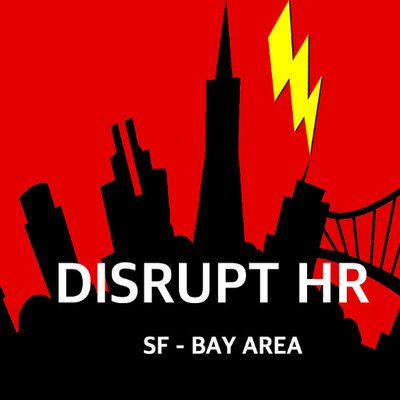
Ahead of DisruptHR San Francisco on Oct 17, we interviewed one of the event’s awesome speakers, Nancy Hauge.
 A former stand-up comedian, Nancy Hauge failed her way to Silicon Valley where she found that an improvisation background and being unencumbered by any skills, knowledge or ability was the perfect recipe for success in human resources.
A former stand-up comedian, Nancy Hauge failed her way to Silicon Valley where she found that an improvisation background and being unencumbered by any skills, knowledge or ability was the perfect recipe for success in human resources.
Nancy Hauge is a veteran of 7 IPOs. Nancy is the author of the upcoming book; “Life in the Boy’s Dorm; My Career in Silicon Valley.” She is also a sought-after public speaker for her work in organizational dislocation, corporate courage, humor in the workplace, innovation and social consciousness in business. Her work has been recognized by graduate schools and profiled in national publications. A native of Chicago, Illinois, Nancy now lives in Wilmington, North Carolina, and San Jose, California.
Please tell us a little about yourself – your career path and expertise.
I started out with aspirations of being a comedy writer. I failed at it. Serendipity has made most of my career choices for me, but once I landed in HR I realized that my expertise in improvisation would be the key to success in the field. Humans are not predictable and thus they are the most interesting aspect of business. The unpredictability of my profession is what draws me to it. I came to Silicon Valley in 1983. I am now officially 2 years older than God.
What’s your company and how does it help professions in the Talent arena?
Since the dawn of the information age we have been teaching people to do jobs a computer should be doing: checking and validating information, entering data, comparing fields in Excel spreadsheets, copying and pasting information, and more. Basically, we’ve limited people by teaching them to be more robotic. Now, with the capability offered by Automation Anywhere, robotic work will be offloaded to a digital colleague and we will unleash the traits that can’t be automated. What are those traits? Understanding human needs and responding appropriately. Employing empathy. Problem-solving by thinking outside the box (something a machine that relies on rules can’t do easily). Innovating. The list goes on, but the key is that companies using Automation Anywhere will be able to focus on taking the robot out of the human.
What made you decide to become a speaker at DisruptHR San Francisco?
Well, you invited me. And I see it as an opportunity to unleash some non-robotic thinking in the HR community.
What will you be speaking about at DisruptHR San Francisco?
How HR is going to change with the introduction of digital colleagues. What does Human Resources look like when 30% of your workforce is not human?
Why is your topic important to HR and Talent pros?
Human Resources professionals always seek ways to be more strategically contributive. What could be more strategic than understanding the tsunami of change coming from the robotic world?
You only get 5 minutes to speak to the audience. What unique challenges, and indeed opportunities, does such a condensed speaking slot offer?
Focus. It is freeing not having to “fill time” and just deliver the heart of the issue. Of course, I keep thinking of Mark Twain and his comment, “I would have written a shorter speech if I had more time.”
How does Disrupt HR provide you with a platform to talk about HR and talent in new ways?
I think the folks who are attracted to the title, “Disrupt” are exactly the folks with whom I want to have this conversation. That sentence is the correct grammar, but awkward.
Please share 2 or 3 ‘influencers’ in the HR, leadership and/or recruitment space you follow and tell us why.
Phil Dixon and his work on the neuroscience of leadership. Herman Gyr and his work on organizational change.
The HR Gazette is a big believer in the shift from traditional thoughts of HR to embracing modern HR as part of ‘people and culture’. What does ‘people and culture’ mean to you?
Culture is the “behaviorization” of your values. Only people have values. Shared values create cultures. So, if you focus on shared values and focus on people; things have a way of working out. The problem is most management teams confuse culture with comfort.
What do you think will be the major developments in the Talent space to watch out for in the next 12 months and why? For example, how does the growing numbers of Millennials in the workplace shape traditional talent management approaches?
The millennials improve the work environment every day they show up. Their need to lead integrated lives has forced the workplace to address humanity in the workplace. I am so thrilled that my 35-year career has crossed paths with this generation! In the next 12 months, robotic process automation will become the topic all HR folks will have to become experts on, whether it is in the HR function or if it is redefining work in other functions. HR will have to address the digital workforce.
Do you agree that AI will disrupt the workforce and replace many roles (e.g. junior HR and salespeople) in the next 5 years?
Bots will do work, not replace jobs. The work they replace will free up the roles you mention to become more people/customer focused not eliminate their roles. This will happen fast and force us to rethink the work people will do. In the future people will only do the work that only people can do; think, care, innovate.

